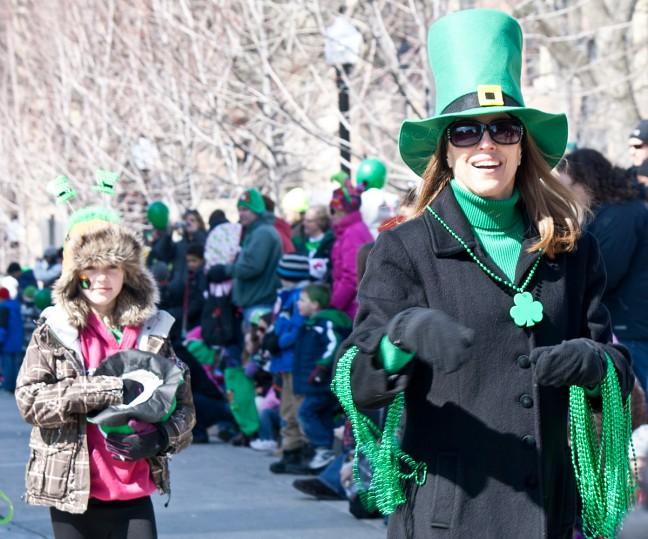I really like the concept of St. Patrick’s Day. Though March 17 is technically supposed to be a Catholic day of observance to remember St. Patrick, it has really just turned into the day where people all over the world celebrate being Irish.
As someone who grew up in a family where we celebrated being Irish just about every day, it’s really cool for me to watch a bunch of people who aren’t Irish at least pretend to appreciate my family’s heritage.
While I don’t necessarily love the fact the day has devolved into Americans just getting black-out drunk and puking in the gutter while wearing a green t-shirt, I’m usually at least okay with it. It gives me a chance to kick back, listen to some trad music, maybe play my Bodhrán for a little while and have a pint of Smithwick’s.
This year though, I think St. Patrick’s Day deserves a little bit more attention and respect for what the history of Ireland and Irish culture represents, especially Irish diaspora in the U.S. I am, of course, talking about the current battle taking place in the U.S. regarding immigration.
Madison leaders call new immigration executive order unconstitutional
In many ways, the events of today are similar to those that took place from the mid-19th century through the early 20th century, with an increasing number of Irish citizens traveling to the U.S. They came to escape starvation during the potato famine, to find work or to escape the tyranny rule of imperial Great Britain. But what many who came soon discovered is they weren’t necessarily welcome here.
Phrases like “mick,” “hibe,” “fenian” or “paddy” were used to denigrate and demean Irish immigrants. Signs that read “no Irish need apply” were in the windows of many businesses and soon many labeled the Irish population as a bunch of no-good drunkards.
I might be wrong, but to me that sounds a lot like what’s happening to immigrants coming from Mexico and refugees coming from the Middle East. Though the phrases used to describe modern immigrants are different and it’s now illegal, to some extent, to hire based solely on ethnicity, the same sentiment still seems clear from many Americans: “We don’t want you here.”
The lesson to be learned here is where the Irish population in the U.S. is today. Descendants of the Irish who were once denigrated for their heritage are now some of the most influential people in America. Many of us are mayors, senators, presidents and CEOs.
For the first time in a while, those who control our government have displayed the same intolerance toward modern immigrants that those in the 19th and 20th centuries displayed to the Irish.
Just be forewarned: If you are anti-immigrant, history will likely frown upon you. For more than a hundred years now, Americans have been fighting back against newly arrived cultures. You know what happens just about every time? The immigrants end up becoming a major backbone of our country.
It will be particularly funny when those who are anti-immigrant have their grandchildren and future generations celebrating holidays associated with those groups, the same way we now celebrate St. Patrick’s Day.
So next time you want a green beer or one of the ever-offensive “Irish Car-bombs,” remember you get to share in a tradition those before you rejected. So maybe being more tolerant and accepting is the way to go in the future.
Connor Touhey ([email protected]) is a senior majoring in political science, history and journalism.














